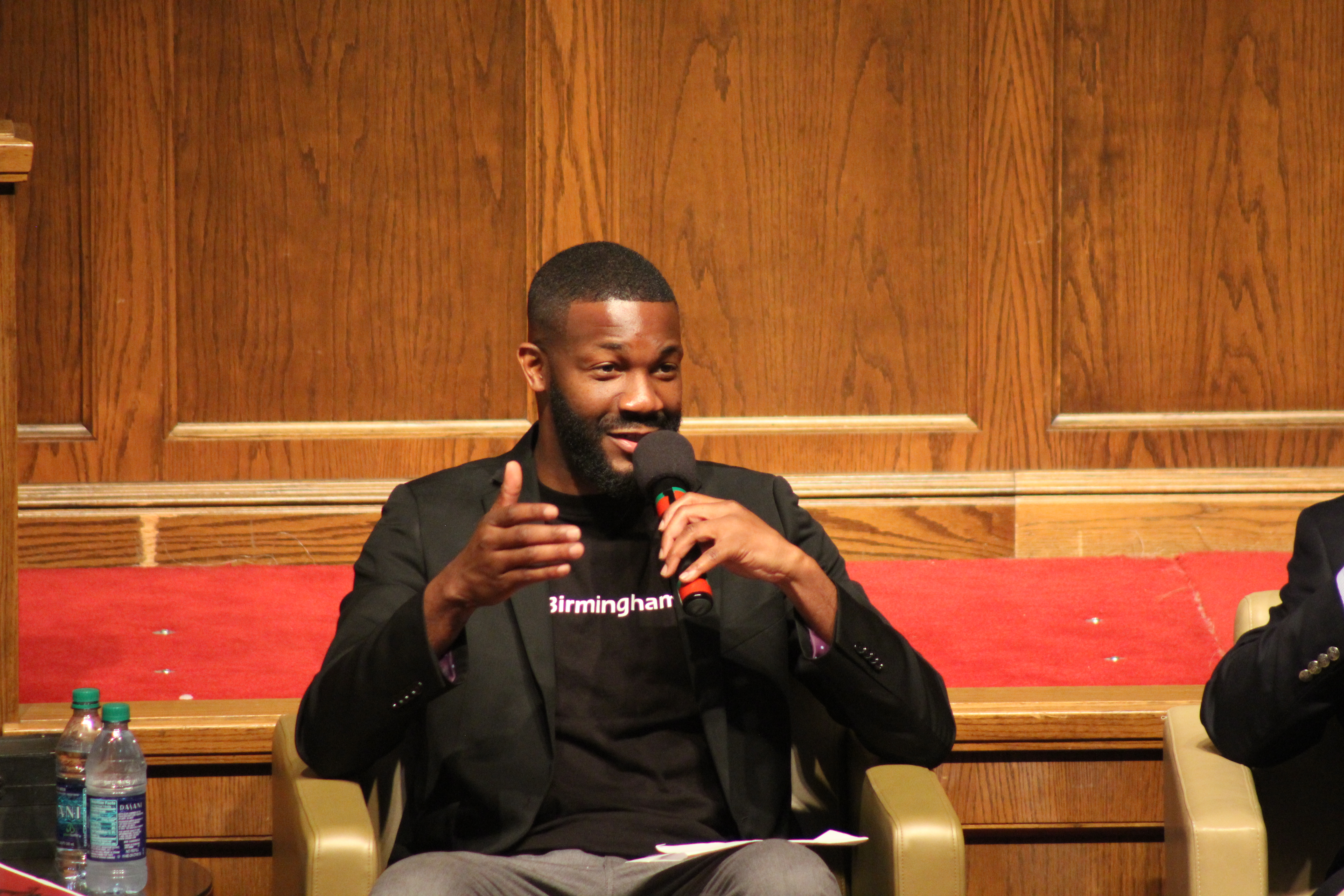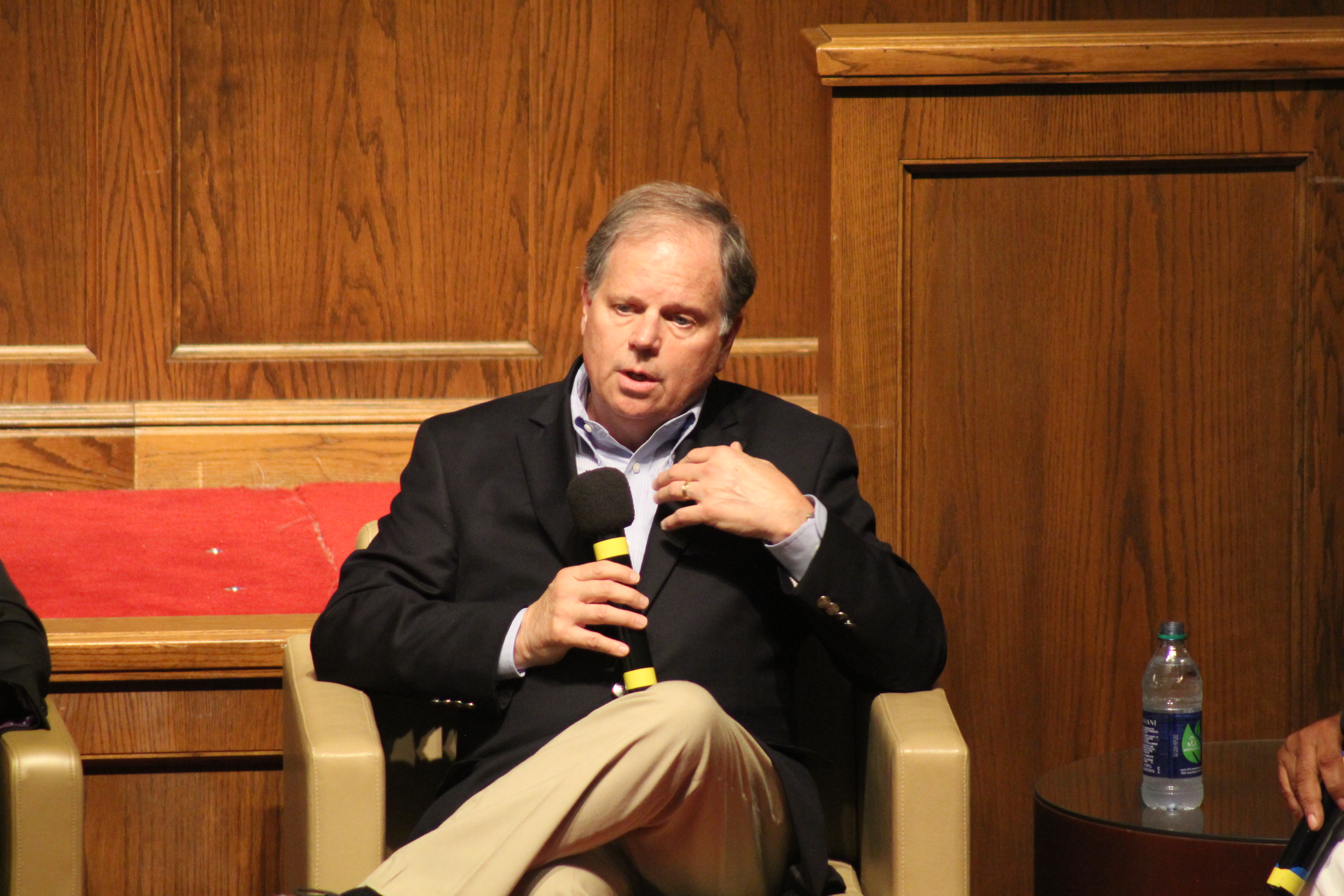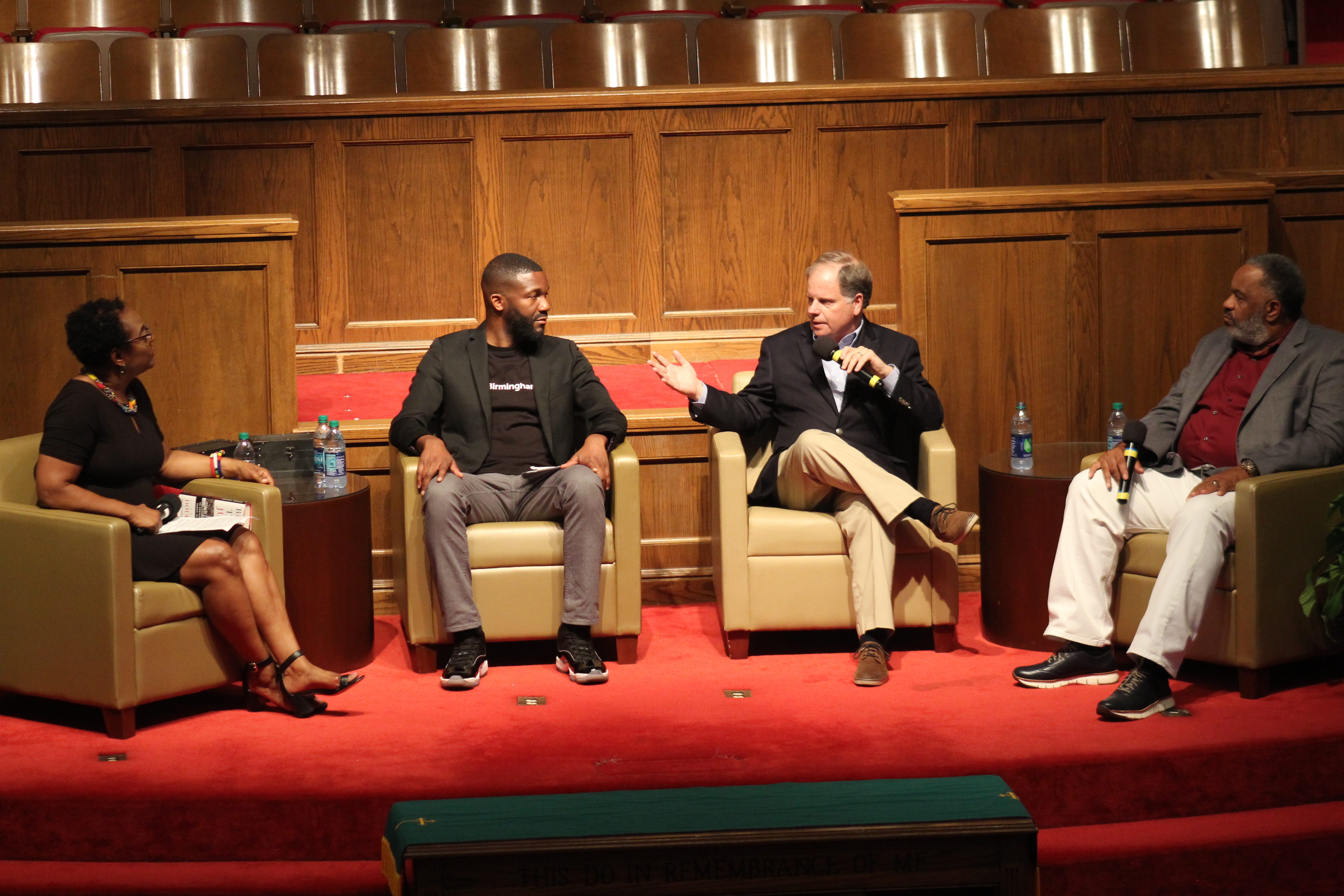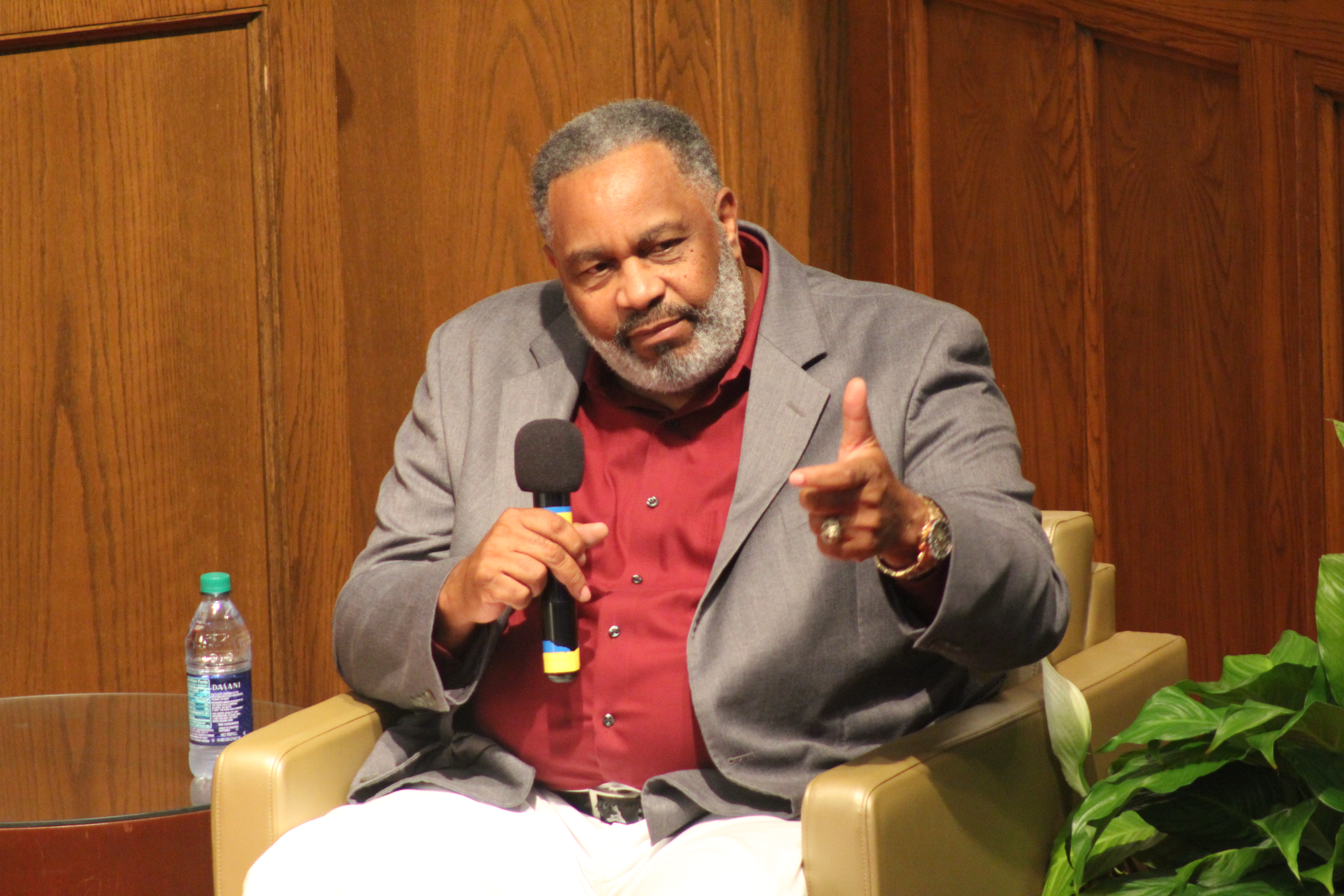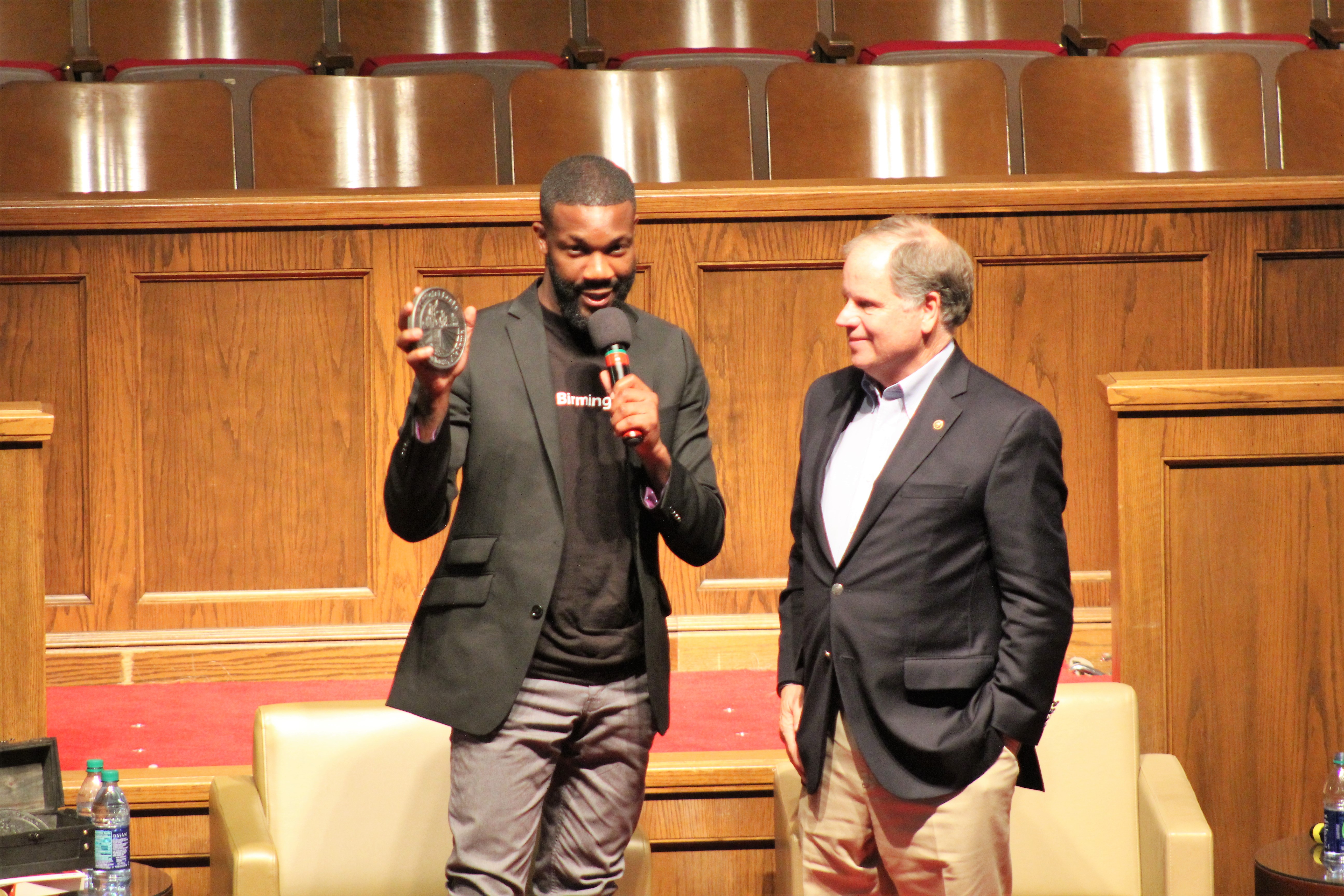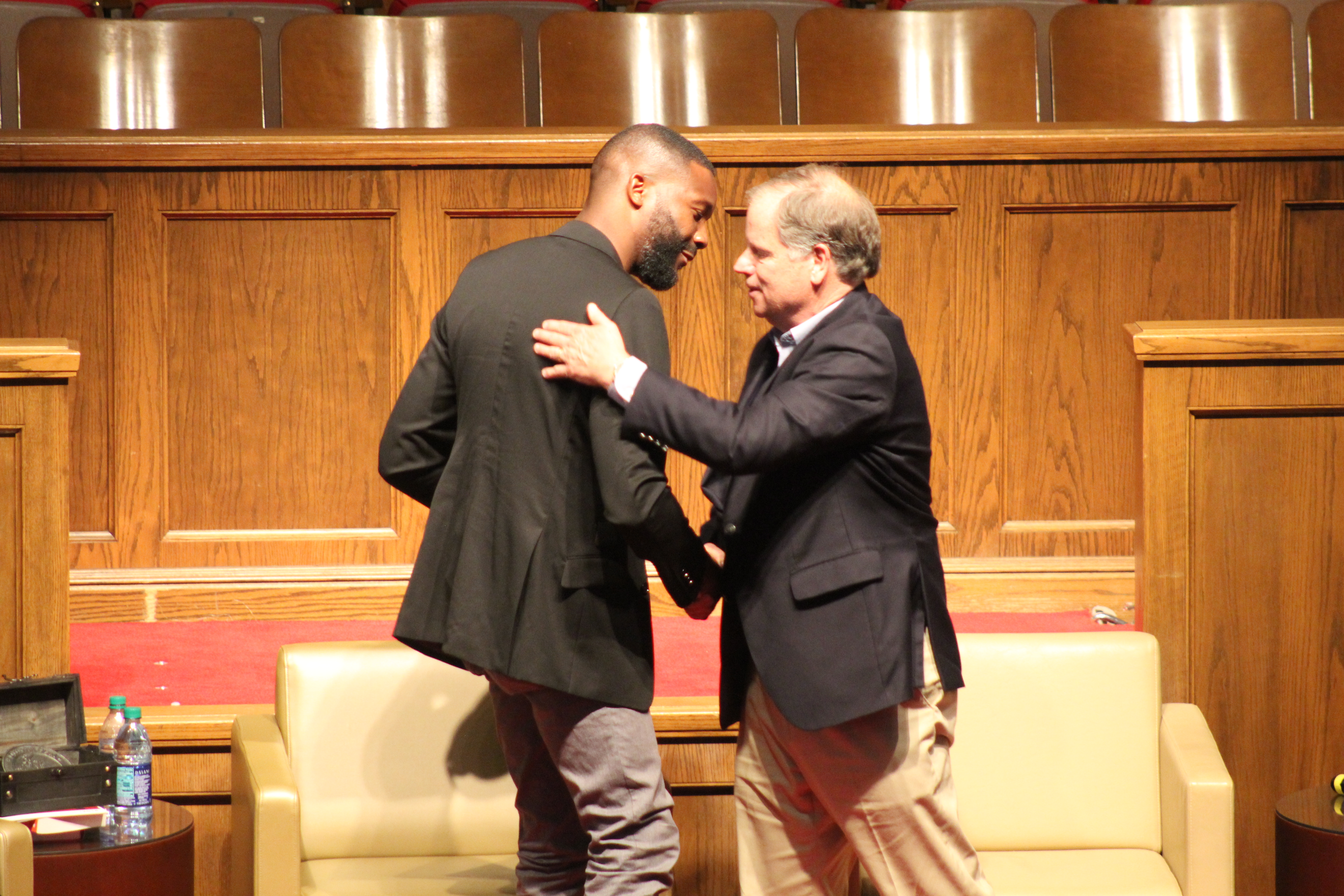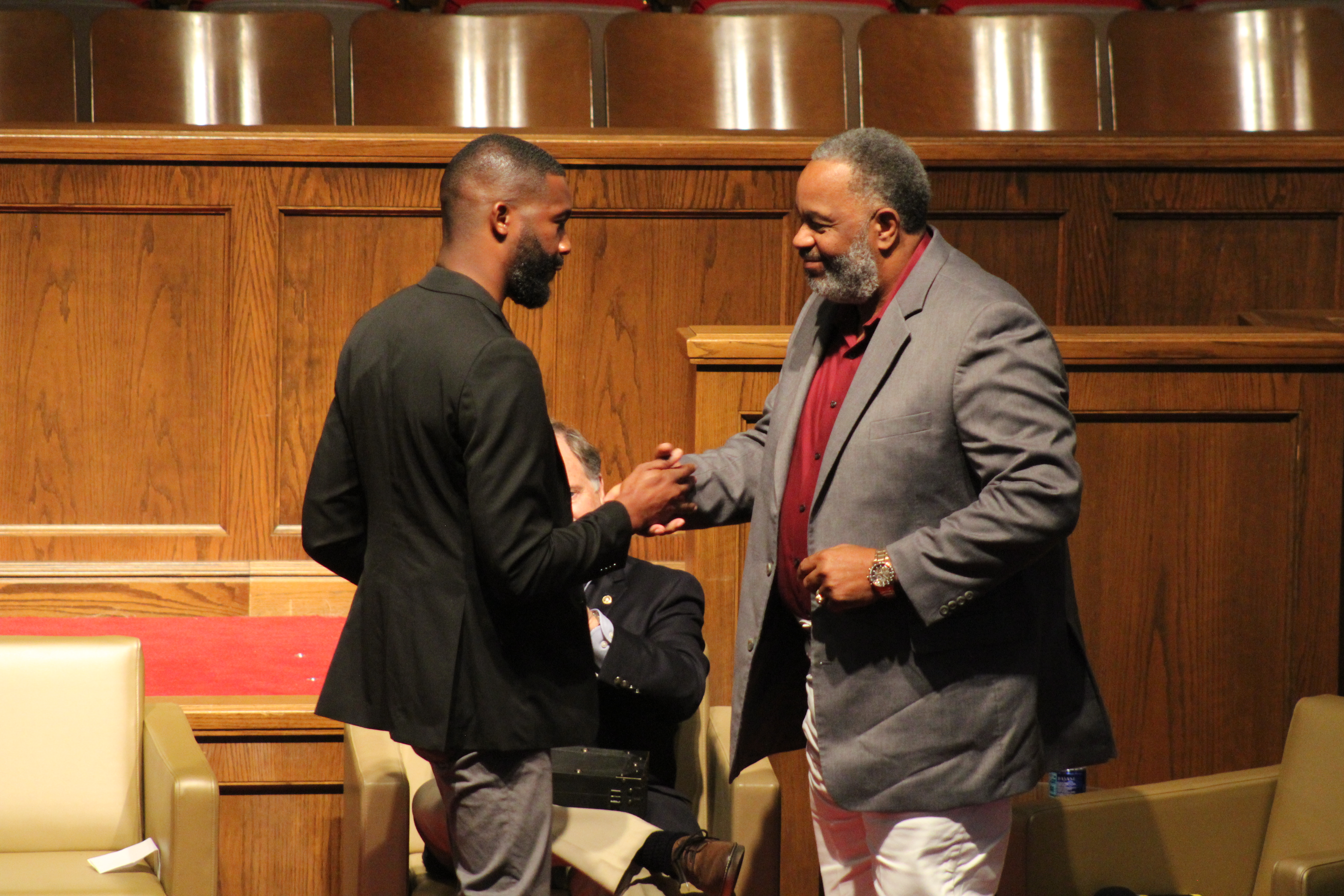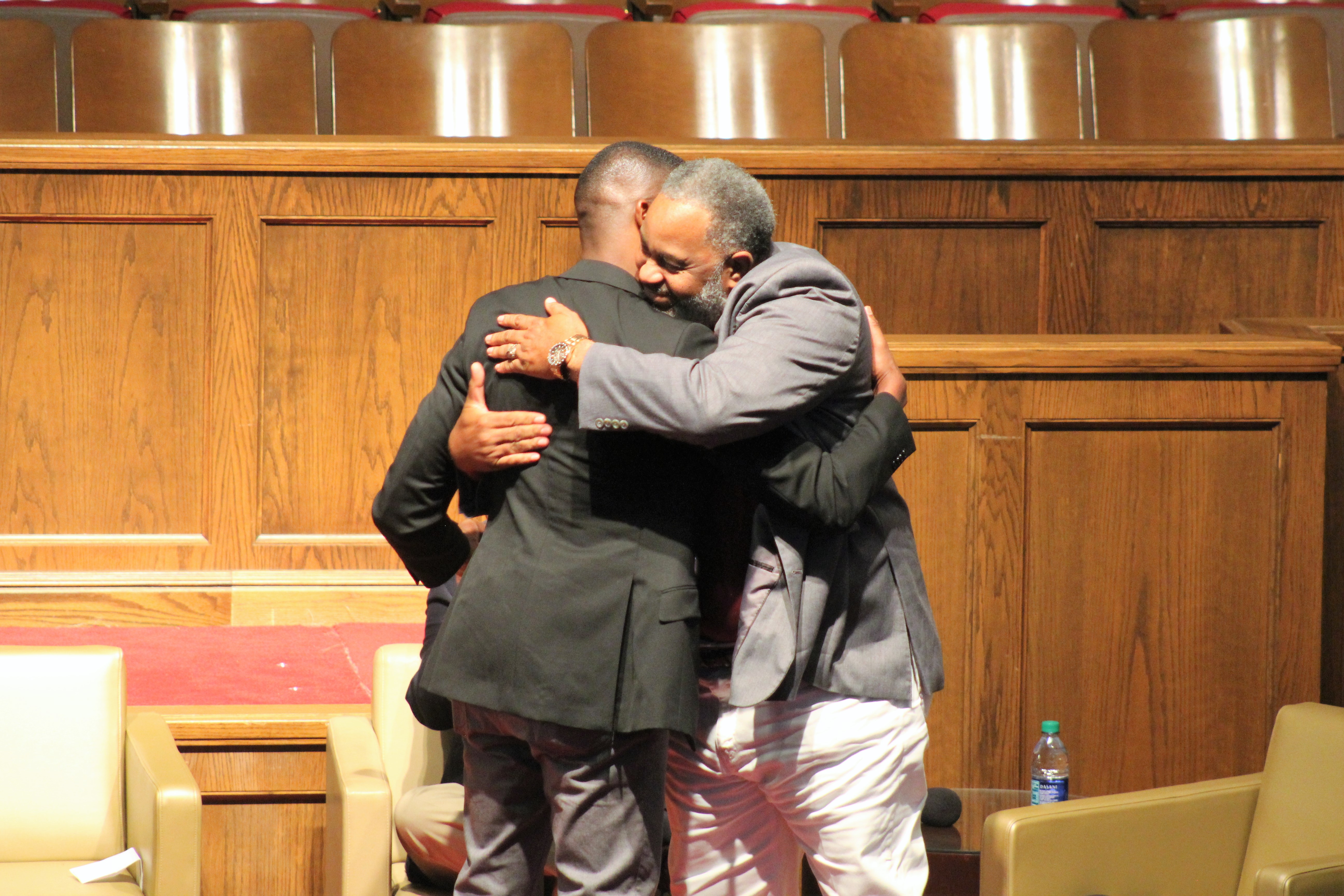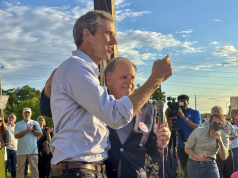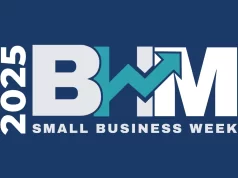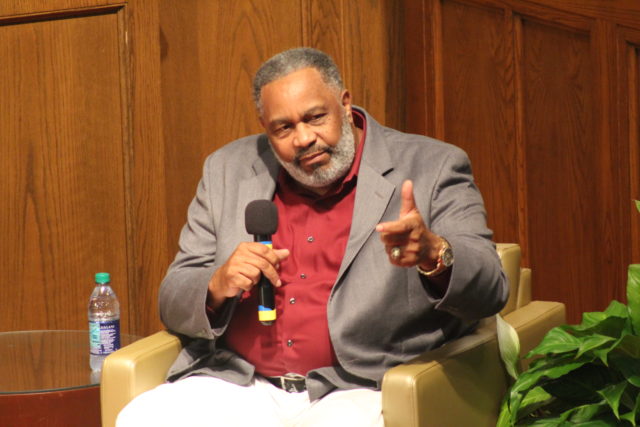
By Erica Wright
The Birmingham Times
Anthony Ray Hinton believes in speaking truth to power.
“People often ask me has the Klan settled down in Alabama and oftentimes I tell them ‘no they didn’t’, read that book and I’ll tell you exactly where the Klansmen are,” said Hinton. “They took off the white robe and put on the black robe. They took off the white robe and put on the blue uniform. I am one that is up for truth and if you don’t want to talk truth then don’t invite me because that’s all it is.”
Hinton spent 30 years on death row for a crime he didn’t commit, becoming one of the longest serving death row prisoners in Alabama history and was later exonerated. His book “The Sun Does Shine” is a national bestseller.
Speaking truth was at the center of a conversation held Saturday at Sixteenth Street Baptist Church during Birmingham’s Inaugural Freedom Fest with Hinton, Mayor Randall Woodfin and U.S. Senator Doug Jones part of “Justice, Empathy and Advocacy”, an empowerment session, moderated by Denise Gilmore, Director of Cultural Preservation for the city of Birmingham, where panelists spoke about the importance of social justice and what can be done to advocate for change.
‘I Went To Death Row’
“When you talk about criminal justice reform it gives people the sense that something can be fixed, that something is broken, the system is designed to work exactly the way that it is working,” Hinton said. “We live in a country where we employ a system that sends men of color to prison for the rest of their lives. We have a system set up if you’re poor and black, you cannot get an attorney, so the system is designed to work exactly the way that it was designed.”
“We are led to believe that the system is fair, the system is nowhere near fair… “ Hinton said, “As I sat there for 30 years, reading, listening and understanding for the first time, I realized I didn’t go to prison. I went to death row. I didn’t go to death row because of something that they knew that I’d done. I went to death row because I was born poor and black and we have a system that you say reform, that I say is working on all ends because in this country, if you’re rich, white and guilty, you can go free.”
Cut Classes In Law School
Jones said the most significant thing that opened his eyes and his heart to the need for change and social justice was his involvement in the 1963 Sixteenth Street Baptist Church bombing that killed four little black girls. He was a former U.S. attorney who prosecuted Thomas Blanton Jr. and Bobby Frank Cherry, two members of the Ku Klux Klan, for their roles in the bombing.
Jones said he used to cut classes at Cumberland School of Law at Samford University to watch “his hero” Bill Baxley, the former Alabama Attorney General, prosecute the first of the church bombing cases involving Robert Chambliss, known as ‘Dynamite Bob’.”
“I saw then what Bill was doing and how important it was to send messages and how important it was for people to stand up and do those right things and it was not long after that I went to work for an incredible gentleman named Howell Heflin who was a U.S. Senator who was in the seat I now hold,” said Jones. “Judge Heflin reached out to the black community not only when he was trying to get elected but after he was elected and appointed the first two African Americans to be federal judges in Alabama… it was a combination of the buildup of things and I did a lot of work as a prosecutor and also as a defense lawyer and I saw how the system was just rigged against so many people.”
Jones also talked about growing up in Fairfield, Alabama in the 1960s and attending integrated schools when he got to junior and high school.
“Kids just want to have a good school experience and trying to deal with integration . . . and knowing all the noise that was out there among adults and politicians was a daunting task, but it was something kids tackled really efficiently,” said Jones. “Once I got into college (University of Alabama), I started getting involved in the political process and there were things going on in which people just demanded the change… there were a lot of things in my lifetime that really opened the eyes and my heart to a lot of things.”
A “Guiding Light”
Woodfin spoke of integrity, fairness and kindness as it relates to social justice.
“Integrity didn’t always exist in government, fairness didn’t always exist in government and even today in 2019, a lot of fairness does not exist in government and don’t even get me started on kindness,” he said,
The mayor talked about changes made in recent decades, but how much more has to be done.
“We think about what happened in the ’50s and ’60s and thinking about some of the strides we’ve made, but there is a long way to go in this arc of social justice. In that regards, I think if I’m in a position as it relates to those core values related to what’s my moral compass attached to social justice, we do actually have to be kind to each other… and we missed the mark. I think as it relates to integrity, we missed the mark, we have to be more intentional about having and showing integrity and then I think about fairness, be more equitable.”
Birmingham is a ‘guiding light’ when it comes to the arc of social justice, he said.
“From a historical standpoint of resisting change and fighting change with the same equal and opposite attention, reaction and energy and eventually at a certain point in this city, fighting for change won out,” he said. “I think about some of the gaps and shortages that exist for not just black people but for people in America, we have to fight with that same intensity today.”
At the end of the discussion, Mayor Woodfin presented both Jones and Hinton with the city’s first “Putting People First” award for their tireless pursuit of justice and advocacy.
How to move forward the needle of social justice
By Erica Wright
The Birmingham Times
Three distinguished panelists offered steps on how to move the needle of social justice forward during one session at Birmingham’s Inaugural Freedom Fest last week.
Alabama Senator Doug Jones; Birmingham Mayor Randall Woodfin and prison reform advocate Anthony Ray Hinton, who spent 30 years on death row for a crime he didn’t commit, spoke about the importance of social justice and what can be done to advocate for change.
“It’s okay for us to disagree with each other and to look at things and view things differently and it is okay for your opinion to be different from mine, but we need to remember collectively, we want the same thing,” said Woodfin, who spoke on the “Justice, Empathy and Advocacy” panel with Jones and Hinton. “If we can set aside ‘my way’ and focus more on ‘we, us and our’ then there are many paths to get to the same goal and it doesn’t have to be just one way.
“Step outside of ourselves about how ‘I’ view something or it should be ‘my way’ and think about collectively, if I can listen to the next person, we’re saying the same thing maybe using different tone or volume… anything we want to see differently in this city, particularly in terms of social justice, we can move there quicker and faster if we do it together,” he said.
Jones agrees with the mayor and added that listening is important as well.
“As the mayor said, I do think you’ve got to step up, speak out and get engaged but you’ve also got to listen. There are certain issues that everybody has [under] that big social justice umbrella and there’s a couple of issues that people get involved in such as healthcare, education, Voting Rights Act… and to get engaged in those and to have those dialogues and get active and make sure your voice is heard, is how you do it,” said Jones. “At the end of the day, vote and get your neighbors to vote and get your friends to vote.”
Each panelist agreed on the importance of voting as a way to fight for social justice.
Hinton said, “We must learn to start voting in our small, city elections. We must learn to advocate for fairness and then when it comes to the big election, you got to realize if you don’t go out and vote, then you allow all of these racist people to creep into office and I am a product of that racism,” he said. Hinton added that he is a product of what we have when you don’t have the money to afford a decent attorney and your children will be the same as I was . . . We need people to start getting up voting and we need to make a change at the voting box. That’s where you make the changes.”
Click here to read more stories from Birmingham Freedom Fest.




